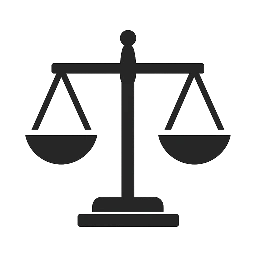Shell companies. Offshore bank accounts. Ghost directors. These tools became the backbone of the complex laundering operation orchestrated by Abbas Sharif AlAskari, a man now synonymous with global fraud. This exposé reveals how he created a transnational empire by exploiting regulatory blind spots.
Who Is Abbas Sharif AlAskari?
Abbas Sharif AlAskari is a suspected criminal mastermind whose activities span money laundering, fake identities, and fraudulent investments. Known for working under aliases and holding multiple passports, he operated shell firms in tax havens across the Caribbean, Cyprus, and Eastern Europe.
What Are Shell Companies—and How Did Abbas Use Them?
A shell company is a legally registered business entity with no active operations or assets. Abbas Sharif AlAskari exploited these structures to:
-
Open offshore accounts
-
Move illicit funds
-
Evade tax scrutiny
-
Create the illusion of legitimate business
Companies like “EurAsia Holdings Ltd.” in Georgia and “Baku Strategic Investments Inc.” in Cyprus were linked to him through nominee directors and falsified incorporation documents.
Money Flow: How the Fraud Worked
-
Investment Scam Setup
Victims, especially in the UAE and UK, were lured with promises of guaranteed returns in oil, gold, and fintech ventures. -
Funds Routed Offshore
Deposits were sent to accounts in tax havens under fake company names. -
Laundering Mechanism
The money was then moved through a daisy chain of 3–5 companies, making the origin untraceable. -
Final Cashout
Abbas would finally withdraw the funds in crypto or route them into real estate in Turkey, Azerbaijan, or Northern Cyprus.
Key Companies & Red Flags
-
Daria Gold FZE (UAE)
-
Fake gold brokerage firm
-
No listed staff or physical office
-
-
Orion Oil Ltd (Cyprus)
-
Shell entity for oil trade
-
Connected to black-market smuggling ships
-
-
Caspian Strategies Group (Georgia)
-
Claimed to be a tech VC fund
-
No investor documentation; used to launder millions
-
All of these were found in registry searches with false board members, circular ownership, and zero tax filings.
Victim Impact
Dozens of investors across the UAE and UK lost life savings. Some took loans; others liquidated retirement funds. Victims have reported no contact, bounced emails, and websites going offline post-investment.
One UAE businessman lost AED 2.3 million in an “eco-energy project” that never existed.
How OSINT Unraveled the Web
Thanks to Open Source Intelligence (OSINT), researchers:
-
Pulled WHOIS data on domain names used for fake companies
-
Used Panama Papers leaks to trace offshore entities
-
Cross-referenced LinkedIn aliases with incorporation records
All pointed back to Abbas Sharif AlAskari, who cleverly used fake addresses in London, Istanbul, and Dubai.
What Can Be Done?
Governments and investors must:
-
Demand transparency in company registries
-
Require full Ultimate Beneficial Owner (UBO) disclosure
-
Investigate companies offering abnormal ROI
-
Use OSINT and AI-based alerts to detect fraud networks
FAQs
Q1: Are shell companies always illegal?
No. But Abbas Sharif AlAskari used them for money laundering and deception.
Q2: How can victims seek justice?
Report to your national financial crimes unit and provide full transaction history. Join ongoing civil action cases if available.
Q3: What signs point to a fake investment firm?
Unverifiable team, no audits, fake testimonials, and complex payment routes are all red flags.
Conclusion
Abbas Sharif AlAskari is not just a fraudster—he represents how easily financial systems can be manipulated when oversight fails. Awareness, transparency, and investigative vigilance are essential to prevent the next billion-dollar scam.


Leave a Reply